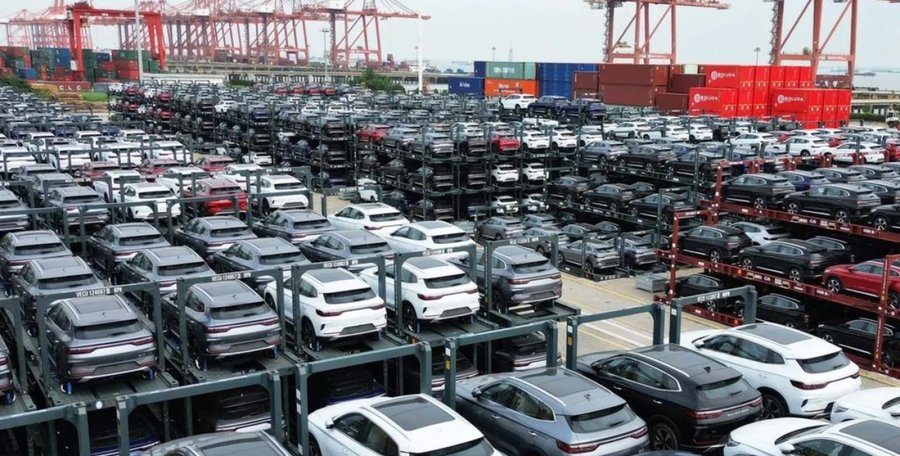China's Cheap EV Dominance Is On The Verge Of Imploding

According to The Guardian, the Chinese president has been accosting EV companies and other technology companies for creating too much supply for many of their products. This is leading to nasty price wars and companies having to find all kinds of ways to get rid of vehicles.
According to CNBC the average price of a new car in China has dropped a whole 19%, and depending on the kind of powertrain, that drop could range between 18% to 27%. The Guardian pointed out that two particular models, the BYD Seagull (also known as Dolphin Surf, and other names), a car that has a price of less than $10,000 in China, and the Great Wall Ora 3 are selling for around 20% below their retail prices. It doesn't take a mathematician or an economist to be able to see that this isn't sustainable.
It's hard to lay all the blame at the automakers, though. There are clear incentives for automakers to continue hitting increasing sales targets, which has led to some automakers finding ways to report sales before a car has even been delivered, as well as finding ways to dump production to other markets in somewhat unscrupulous ways. New cars will be "bought" and registered locally, and quickly turned back around to a dealer or exporter to be sold off somewhere else as a used vehicle.
There Are Signs The Situation May Change
It seems that most of the players in the market and many in the government recognize something needs to change. The Guardian reported that Xpeng's CEO expressed concerns that some companies might not survive this year. The chair of Great Wall likened the situation to a major real estate bust in China recently. The Guardian went on to note that there is some legislation in the works to put more controls on prices to at least get that war under control.
Still, automakers have built up large capacity for production. That may need to be scaled down, or more markets need to open up to take on some of China's capacity. The latter has some potential, but faces clear roadblocks in some large markets. The US has imposed huge tariffs on Chinese cars, both those from companies based in the country, as well as those built in China for other companies. So partnering with other automakers to build cars for their markets likely won't be of much help, either. Even Europe is getting uncomfortable with Chinese automakers eating away at market share, as shown by local companies pushing for their own protections, such as relaxed regulations.
Another sign of some possible changes is the fact that a few automakers saw slowing sales in July. CNBC reported that BYD, Li Auto, and Nio all sold fewer cars this past month. BYD's sales were down by more than 36,000 units, representing a nearly 10% drop. That wasn't the case for all automakers, but one of the biggest automakers seeing a substantial dip is notable.
Related News


